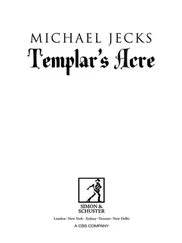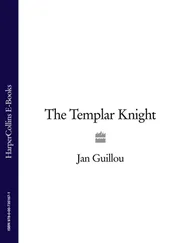C. Palov - Templar's Code
Здесь есть возможность читать онлайн «C. Palov - Templar's Code» весь текст электронной книги совершенно бесплатно (целиком полную версию без сокращений). В некоторых случаях можно слушать аудио, скачать через торрент в формате fb2 и присутствует краткое содержание. Год выпуска: 0101, Издательство: Penguin Group USA, Inc., Жанр: Старинная литература, на английском языке. Описание произведения, (предисловие) а так же отзывы посетителей доступны на портале библиотеки ЛибКат.
- Название:Templar's Code
- Автор:
- Издательство:Penguin Group USA, Inc.
- Жанр:
- Год:0101
- ISBN:нет данных
- Рейтинг книги:5 / 5. Голосов: 1
-
Избранное:Добавить в избранное
- Отзывы:
-
Ваша оценка:
- 100
- 1
- 2
- 3
- 4
- 5
Templar's Code: краткое содержание, описание и аннотация
Предлагаем к чтению аннотацию, описание, краткое содержание или предисловие (зависит от того, что написал сам автор книги «Templar's Code»). Если вы не нашли необходимую информацию о книге — напишите в комментариях, мы постараемся отыскать её.
During the Middle Ages a rumor was born about a mysterious and sacred Ancient Egyptian text. Known as the Emerald Tablet, it was said to contain the secret of creation.
But the greatest secret of all is who wrote it...
Templar's Code — читать онлайн бесплатно полную книгу (весь текст) целиком
Ниже представлен текст книги, разбитый по страницам. Система сохранения места последней прочитанной страницы, позволяет с удобством читать онлайн бесплатно книгу «Templar's Code», без необходимости каждый раз заново искать на чём Вы остановились. Поставьте закладку, и сможете в любой момент перейти на страницу, на которой закончили чтение.
Интервал:
Закладка:
For thousands of years, the Emerald Tablet remained hidden; until an ambitious upstart named Tuthmose discovered the sacred relic hidden inside a temple column at Hermopolis. A high-ranking member of Pharaoh Akhenaton’s court, Tuthmose was an adherent of monotheism, holding firm to the belief that Aten was the only god in the heavens. It was this ardent belief in the one god that led Tuthmose to slay the temple priests who still believed in the divine pantheon. It was this ardent belief in the one god that led Tuthmose to command the pharaoh’s armies and crush all dissenters. And it was this same ardent belief that inspired Tuthmose to lead the Egyptian royal court and all of its Hebrew slaves out of Egypt.
To secure and consolidate his power, the ambitious Tuthmose, now called Moses, wielded the Emerald Tablet like a weapon. He further strengthened his dominion by creating a new monotheistic religion that heralded Yahweh as the one god. A capricious divinity, Yahweh demanded blind obedience, capable of unimaginable bloodlust if his divine will was thwarted.
Yahweh’s divine will would became the basis for Moses’s innumerable laws, violations of which were punishable by death. To record these draconian strictures, Moses invented the Hebrew alphabet. He then wrote the Torah, the first five books of the Old Testament, to reinforce the laws, and he instituted a hereditary priesthood to safeguard the mystical secrets that enabled his totalitarian rule. Gifts from the patriarch.
But Moses was not content to stop there. The ruthless leader next taught the Hebrews how to kill in the name of the one god. To wage “holy” war. And with the sacred relic in his arsenal, no one could stop Moses.
None did. In fact, the first recorded genocides in history were those of the Old Testament, all committed in the name of the one god, the newly minted Yahweh. One brutal account, in particular, speaks to Moses’s infamy. When the Hebrew army returned from their conquest of Midian, it was not enough that the enemy army had been put to the sword and their entire adult male population slaughtered. Moses, infuriated by this act of “leniency,” commanded his soldiers to kill the adult women, butcher every male child and debauch every virgin girl. Regardless of her age. According to the account in Numbers, thousands of children were raped.
Oh, the horror of it!
An atrocity like none other. Glorified for time immemorial in the biblical text.
Is it any wonder that the political theorist Niccolò Machiavelli greatly admired the biblical patriarch?
But Mercurius knew, as did Osman de Léon and Moshe Benaroya, that the man immortalized as the patriarch of the three religions of the Book distorted and corrupted the Light, profaned the sanctity of life, and abused the sacred knowledge to further his own megalomaniacal ambitions. And by so doing, Moses unleashed a dark energy that permeates the world still. In the Luminarium , Osman and Moshe explained how this dark energy was an ancient curse. One that must be reversed.
Chilled, Mercurius walked to the patio door. Despite the cool temperature, a palpable heaviness hung in the air. As though each airborne molecule had been drenched in a thick syrup. He entered the house and walked down the hallway toward his study. As was his custom, he stopped in front of the row of framed photographs and with respectful silence gazed at each horrific image.
Eyes welling with tears, he lightly rested his forehead on the photograph in the middle. Auschwitz. That sadistic death camp where Osman and Moshe drew their last breaths.
Oh, the horror of it.
Knowing it will happen again. And again . . .
The Crusades. The wars of religion. The world wars.
Not only did Moses glorify war, he claimed that those horrific atrocities were sanctioned by God. But that was a lie. A hoax. A cruel deception that perpetuated the evil by wrapping it in hallowed vestments. The so-called holy wars were simply a bloodthirsty exercise of power. No different from the bloodthirsty exercise of power that forced Thoth, the Atlantean High Priest, to use the sacred relic to create a single catastrophic burst of energy that destroyed the entire continent of Atlantis.
For the greater good.

CHAPTER 55
“It was the light that led me to the Bacon frontispiece.” As she spoke, the young woman in the farthingale and mop cap nervously eyed Caedmon and Edie.
The Light? Surely the costumed museum docent wasn’t referring to Aten, the god of radiant light. Or was she?
Caedmon didn’t know what to make of the woman’s enigmatic statement.
He peered over his shoulder, verifying that they still had the first-floor drawing room to themselves, the next tour group due to traipse through a few minutes hence. A living history museum, 36 Craven Street was a popular tourist destination. Benjamin Franklin had resided at the modest Georgian town house in the decades immediately preceding the revolution. As he understood it, the house had fallen into a derelict state and had only recently been resuscitated, having undergone a complete restoration.
Luckily, he and Edie had had no difficulty tracking down “the chit” who’d sold Rubin the frontispiece. The introductions had been simple and straightforward: Miss Beatrice Stanley, I’m Chief Inspector Peter Willoughby-Jones, Metropolitan Police. This is Special Agent Elizabeth Ross, my counterpart at the FBI. We have a few questions regarding a recent transaction that you made with one Rubin Woolf.
At hearing that, the slack-jawed docent in the farthingale had immediately capitulated, no doubt terrified that she would be arrested on the spot and hauled to the jail in handcuffs.
The heavy artillery unlimbered, the interrogation had proceeded in a straightforward manner. Now they were in the process of establishing how precisely Miss Stanley came to be in possession of the Francis Bacon frontispiece.
“The Light?” Edie parroted, her thoughts running a parallel course. “Do you mean to say that it was divine inspiration that—”
“Are you daft? I mean the light! ” Having unexpectedly turned belligerent, the docent gestured to the bank of floor to ceiling windows that lined one wall of the first-floor drawing room. Although gray storm clouds cast a dismal hue, daylight flooded the empty room. “I was leading a tour group through the drawing room when an obnoxious Yank, who claimed he was a restoration expert, pointed out that because of the way the sunlight was streaming through the windows, he could see that the dado railing had slightly buckled away from the wall. I commended the fat bastard for his keen eye and promised him that I would report the defect to the appropriate personnel.”
“And did you make good on the promise?”
“If I had, we wouldn’t be standing here, would we?”
“Can the attitude,” Edie snarled, having assumed the role of bad cop to his good. “And do me another favor, just stick to the facts.”
Caedmon wasn’t altogether certain, but he thought Edie’s last remark had been lifted from the script of a vintage police drama.
“Curious bitch that I am,” the costumed docent defiantly glared at Edie, “I wedged my house keys behind the railing and pried off a small section of woodwork. Imagine my surprise at discovering a cavity with a bunch of old papers hidden behind the wainscoting.”
Papers! But he thought there was just the one engraved frontispiece.
“Ohmygosh!” Edie exclaimed, also surprised by the revelation. “Do you mean to say there were other Bacon documents hidden behind the panel?”
Читать дальшеИнтервал:
Закладка:
Похожие книги на «Templar's Code»
Представляем Вашему вниманию похожие книги на «Templar's Code» списком для выбора. Мы отобрали схожую по названию и смыслу литературу в надежде предоставить читателям больше вариантов отыскать новые, интересные, ещё непрочитанные произведения.
Обсуждение, отзывы о книге «Templar's Code» и просто собственные мнения читателей. Оставьте ваши комментарии, напишите, что Вы думаете о произведении, его смысле или главных героях. Укажите что конкретно понравилось, а что нет, и почему Вы так считаете.












